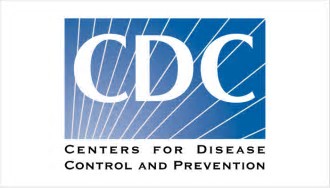Effective sterilization is essential to protecting patients and staff in the dental setting. Biological monitoring,…
Study Shows Many Dentists Prescribe Too Many Antibiotics
A cohort study in the May 2019 issue of JAMA Network Open found that 81% of prescriptions for antibiotic prophylaxis prior to dental visits did not follow current guidelines. Compared with previous recommendations, there are currently relatively few patient subpopulations for whom antibiotic prophylaxis may be indicated prior to certain dental procedures. The American Heart Association (AHA) guidelines for preventing infective endocarditis and the American Dental Association (ADA) recommendations for preventing prosthetic joint infections were updated in 2007 and 2014, respectively, because of inadequate evidence on the effectiveness of antibiotic prophylaxis, lack of an association between endocarditis and joint infections and dental care, and the risk of antibiotic-associated adverse events.
According to the ADA, recommendations for antibiotic prophylaxis prior to certain dental procedures have existed historically for two groups of patients:
- Patients with heart conditions that may predispose them to infective endocarditis. ADA Recommendation(s): For infective endocarditis prophylaxis, current guidelines support premedication for a relatively small subset of patients. This is based on a review of scientific evidence, which showed that the risk of adverse reactions to antibiotics generally outweigh the benefits of prophylaxis for many patients who would have been considered eligible for prophylaxis in previous versions of the guidelines. Concern about the development of drug-resistant bacteria also was a factor. Infective endocarditis prophylaxis for dental procedures should be recommended only for patients with underlying cardiac conditions associated with the highest risk of adverse outcome from infective endocarditis. For patients with these underlying cardiac conditions, prophylaxis is recommended for all dental procedures that involve manipulation of gingival tissue or the periapical region of teeth or perforation of the oral mucosa.
- Patients who have a prosthetic joint(s) and may be at risk for developing infections at the site of the prosthetic. ADA Recommendation(s): In patients with prosthetic joint implants, prophylactic antibiotics are not recommended prior to dental procedures to prevent prosthetic joint infection. For patients with a history of complications associated with their joint replacement surgery who are undergoing dental procedures that include gingival manipulation or mucosal incision, prophylactic antibiotics should only be considered after consultation with the patient and orthopedic surgeon; in cases where antibiotics are deemed necessary, it is most appropriate that the orthopedic surgeon recommend the appropriate antibiotic regimen and, when reasonable, write the prescription.
Since 1992, OSHA Review, Inc. has provided dental professionals with comprehensive programs to support regulatory compliance and infection control. We are a registered continuing education provider in the state of California, specializing in Dental Practice Act, infection control, and OSHA training.



